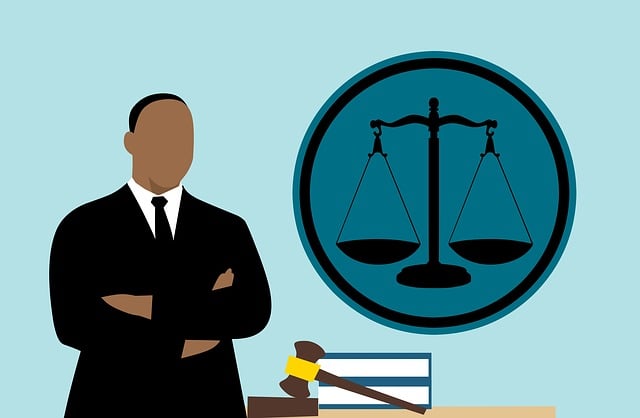Mental Health and Impaired Driving (MHID) offenders often struggle with underlying mental health issues like depression, anxiety or substance abuse, requiring tailored support. The complex nature of MHID cases challenges legal navigation due to stigma and lack of understanding. Reintegration programs addressing psychological needs, providing therapy, life skills training and community support, are crucial to break the cycle of addiction and recidivism. Success stories demonstrate the power of rehabilitation in transforming lives. Balanced policies integrating mental health services, education, community engagement and peer mentoring can effectively reduce repeat offenses.
In a complex interplay, first-time offenders with mental health issues often find themselves entangled in legal systems due to impaired driving. This article delves into this intricate web, exploring key aspects such as understanding mental health’s role in impaired driving, the profound societal impact, and the challenges faced by these first-timers legally. We highlight reintegration efforts, share stories of recovery, and propose policy recommendations for effective support and prevention, emphasizing the importance of second chances for those grappling with both issues.
- Understanding First-Time Offenders: A Look at Mental Health and Impaired Driving
- The Impact of Impaired Driving on Individuals and Society
- Challenges Faced by First-Time Offenders in the Legal System
- Reintegration and Rehabilitation: Supporting First-Time Offenders with Mental Health Issues
- Successful Second Chances: Stories of Turnaround and Recovery
- Policy Recommendations for Effective Support and Prevention
Understanding First-Time Offenders: A Look at Mental Health and Impaired Driving

Many first-time offenders, especially those facing charges related to impaired driving, often have underlying mental health issues that contribute to their decisions. It’s crucial to recognize and address these complexities. Mental health problems like depression, anxiety, or substance use disorders can impact a person’s judgment and impulse control, leading to risky behaviors such as driving under the influence.
Understanding this connection between mental health and impaired driving is essential for providing appropriate support and second chances. Effective interventions and rehabilitation programs tailored to address both the legal consequences and underlying mental health concerns can help first-time offenders make better choices in the future.
The Impact of Impaired Driving on Individuals and Society

Impaired driving has profound and lasting effects on both individuals and society as a whole. Beyond the immediate risks of accidents and injuries, it significantly impacts mental health. Those who drive under the influence often struggle with guilt, shame, and anxiety, which can lead to depression and post-traumatic stress disorder (PTSD). The consequences extend beyond the driver, affecting families, friends, and communities.
On a societal level, impaired driving contributes to increased healthcare costs due to accident treatments and long-term care for victims. It also strains law enforcement resources and justice systems, as well as impact economic productivity through lost wages and increased insurance rates. Moreover, it erodes public trust in road safety measures and can perpetuate a cycle of reckless behavior, underscoring the urgent need for second chances and programs that address both the crime and its underlying causes, such as mental health issues.
Challenges Faced by First-Time Offenders in the Legal System

First-time offenders, especially those facing charges related to mental health or impaired driving, often encounter significant challenges within the legal system. The complexity of these cases demands a nuanced approach, as individuals struggling with mental health issues or substance abuse may not fully comprehend the legal process or the consequences of their actions. This can lead to a lack of preparedness and a sense of being overwhelmed, hindering their ability to navigate the court system effectively.
Moreover, the stigma surrounding mental health and addiction often plays a role in the treatment they receive. First-time offenders might face prejudice, making it harder for them to access the support and resources they need. Impaired driving cases further complicate matters, as these individuals may require specialized legal counsel and rehabilitation services to address both the criminal charge and any underlying issues related to substance abuse or mental health disorders.
Reintegration and Rehabilitation: Supporting First-Time Offenders with Mental Health Issues

Reintegration into society for first-time offenders, especially those with mental health issues related to impaired driving, is a critical step towards rehabilitation and preventing recidivism. Many individuals struggle with addiction, stress, or other psychological conditions that may have contributed to their decision to drive while under the influence. Providing them with access to mental health services, therapy, and support groups can be transformative. These programs help offenders understand and manage their conditions, fostering personal growth and reducing the risk of future offenses.
Rehabilitation should also involve education about responsible behavior and the consequences of impaired driving. Teaching life skills, job training, and offering housing assistance can empower first-time offenders to make positive choices and rebuild their lives. With the right support, these individuals can overcome their challenges, heal from past mistakes, and contribute productively to society.
Successful Second Chances: Stories of Turnaround and Recovery

Many first-time offenders, especially those facing charges related to mental health and impaired driving, are given a second chance to turn their lives around. This isn’t just an opportunity for them; it’s a crucial step in addressing the root causes behind these actions. Stories of turnaround and recovery highlight the power of rehabilitation and support systems.
These narratives often feature individuals who, after acknowledging their mistakes, sought help and made significant strides towards healing. Through counseling, community service, and personal growth initiatives, they’ve not only reclaimed their lives but also contributed positively to their communities. Such success stories underscore the importance of providing resources and understanding for those facing mental health challenges, ensuring a more promising future for all involved.
Policy Recommendations for Effective Support and Prevention

Implementing effective policies for first-time offenders with impaired driving convictions requires a multifaceted approach that addresses both punishment and support. One crucial recommendation is integrating mental health services into the rehabilitation process. Many offenders struggle with underlying mental health issues, such as depression or anxiety, which may contribute to risky behavior. Providing access to counseling and therapy can help address these problems directly, potentially reducing repeat offenses. Additionally, offering educational programs on responsible drinking and safe driving practices empowers individuals to make better decisions in the future.
Prevention strategies should also focus on community engagement and awareness campaigns that highlight the consequences of impaired driving. Educating young adults about the impact on their future—including potential loss of independence due to license suspension or even jail time—can serve as a powerful deterrent. Furthermore, creating support networks and peer mentoring programs can provide first-time offenders with positive role models and encouragement to stay on the right path, thereby reducing recidivism rates.
Impaired driving is a complex issue, especially when first-time offenders are involved. By understanding the intersection of mental health and impaired driving, we can address the challenges faced by these individuals within the legal system. Reintegration and rehabilitation programs that focus on supporting mental health needs can provide second chances, leading to successful turnaround and recovery. Implementing targeted policy recommendations, including accessible treatment options and comprehensive support services, is crucial for preventing impaired driving and fostering positive outcomes for first-time offenders.






